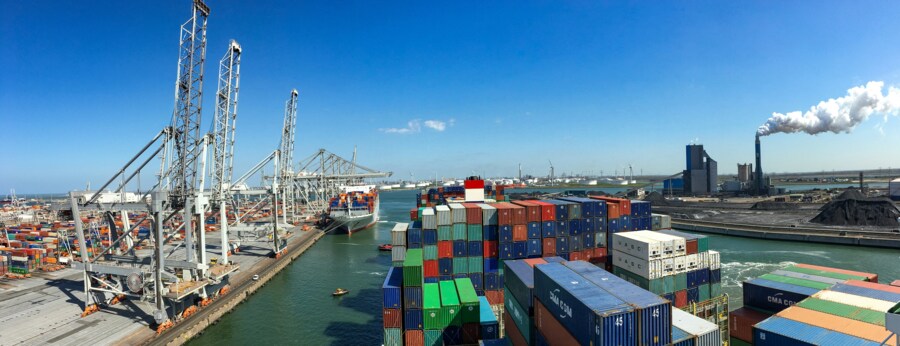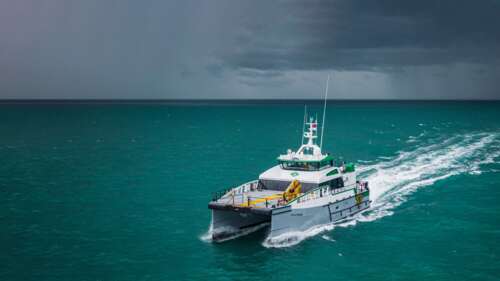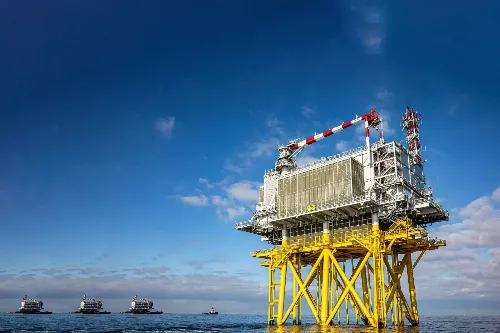Thinking about taking your engineering skills abroad but unsure what to expect? You’re not alone. Every year, dozens of mid- to senior-level engineers take the leap with Middle Point. Curious, ambitious, and highly skilled, but often full of practical questions. That’s why we’ve gathered the 10 most common ones engineers ask us before they relocate. With real answers from our team.
1. Is English enough to work in the Netherlands or Germany as an engineer?
Yes. Most engineering teams in the maritime sector work in English. At Middle Point, every assignment we offer is suitable for professionals who are fluent in English. While learning Dutch or German is a plus for your social life, it’s rarely required for your job. And no, you don’t need to speak perfect English from day one. Most engineers grow into it naturally. Step by step, you’ll feel more confident using English at work, and you might even pick up the local language along the way. The working culture is supportive, and you’re not expected to know everything at once.
2. What relocation support does Middle Point offer?
Our relocation experts guide you through every step: visa procedures (if needed), social security registration, health insurance, local orientation, and more. We even help you settle into your new city smoothly, you’re never on your own!
We’ve supported hundreds of engineers over the years and have built a strong, reliable network to make your transition as smooth as possible. The way we work is really built around what you need, to guide, support, and make every step feel manageable.
3. How much can I earn as an engineer working abroad?
Salaries vary depending on your experience, specialization, and the project. But rest assured: we work with top-tier clients in shipbuilding, yacht building and offshore and they pay accordingly. To give you a general idea, mid-level engineers typically earn between €4,000 and €6,000 gross per month, with senior specialists earning more.*
4. What kind of maritime engineering jobs are available in the Netherlands and Germany?
At Middle Point, we connect engineers to high-impact roles like:
- Structural, mechanical, electrical and interior engineers
- Project and design engineers
- Automation and systems integration experts
- Project leads and team managers
You might be part of a team designing a brand-new superyacht, or working on the systems behind an offshore platform. Whatever the project, you'll be doing meaningful work in a field that’s always moving forward and you’ll do it with people who care about the same things you do.
Curious what kind of roles we’re hiring for right now? Take a look at our vacancy page, your next step might already be there.
5. How long does the recruitment process take with Middle Point?
It usually takes around 3 to 6 weeks from our first chat to signing a contract. We like to move quickly, but always in a careful and clear way. You’ll have a personal intake with one of our consultants, talk directly with clients, and get step-by-step support the whole way through. And it doesn’t stop there, we make sure you’re ready on day one, and we stay involved even after you’ve started. Same energy, same commitment.
6. Do I get a permanent contract or freelance work abroad?
Both options are possible. Most engineers begin on a full-time contract through Middle Point, which includes things like paid holidays, health insurance, and a pension. If freelance is a better fit for your situation, that can work too, it depends on the role and what you're looking for.
We want it to work well for you and the company you’ll join, so we stay flexible. That means we’re open to different setups, and happy to explore what suits you best.
7. Can I relocate with my partner or family as an engineer?
Absolutely. Many of our engineers move with their families and we know that’s a big step. Changing your routines, finding a new home, arranging schools, there’s a lot to take care of. That’s why we’re here to help with more than just the paperwork.
We support you in finding a nice place to live, good schools, and local childcare if needed. Our goal is to help you and your family feel comfortable and settled. When things fall into place, your new job abroad can become more than just a career move, it can be a fresh, exciting chapter for everyone.
8. Does Middle Point help with finding housing abroad?
Yes. We help you find both temporary and long-term housing. That might be a furnished apartment close to your new job, or a family-friendly home near an international school.
Finding a place to live in a new country can be challenging, especially if you don’t know how the housing market works or what to watch out for. But don’t worry, we know the process and we know the local market. We guide you through it and help you avoid common mistakes, so you can settle into your new home without stress.
9. Is my engineering degree valid in the Netherlands or Germany?
If you hold a Bachelor’s or Master’s degree from an EU or EER country, your qualification is automatically recognized. For specific roles, we’ll advise you if additional registration or documentation is needed, but we’ll guide you through that too, so most of the time, you’re ready to go!
10. Can I build a long-term engineering career in another country?
Yes. Many of our engineers stay for a long time, some even build a new life in their new country. Others move on to new roles or different projects, depending on what fits their goals.
Working abroad doesn’t have to be a one-time adventure. It can be a smart, long-term career move. Whether you grow into a lead role, take on new challenges, or stay with one company for years, it’s about building your career in a way that works for you.
Want to know where your opportunities lie as an engineer or maritime company? Join The #1 home of engineers! Find our contact details here.
*Salary indication based on industry data from Middle Point placements, client benchmarks, and public sources such as CAO Metalektro.





